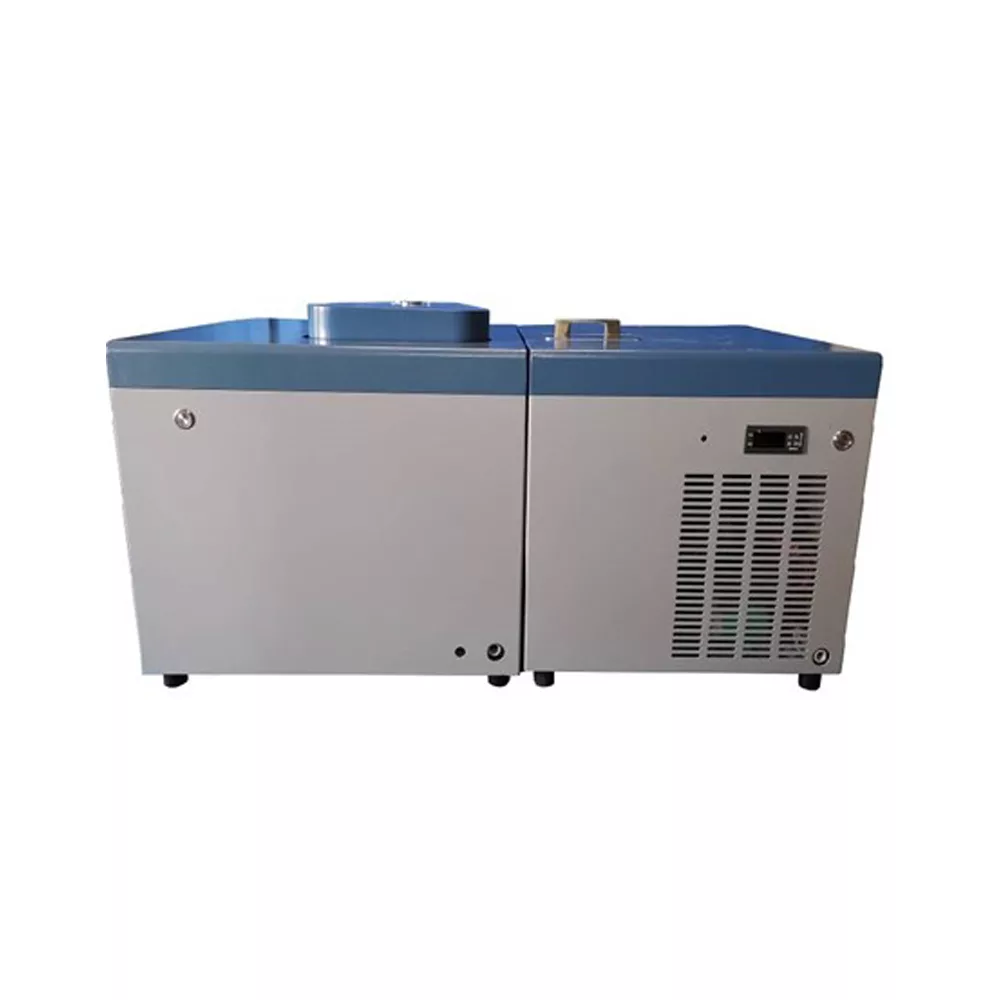Calorimeter: The Essential Tool for Measuring Heat in Chemical and Physical Processes
Calorimeter KCB/A/20 is a vital piece of laboratory equipment used to measure the heat involved in chemical reactions, physical changes, or heat capacity in materials. Whether you are conducting research in thermodynamics, studying combustion in fuels, or analyzing metabolic reactions in biological systems, a calorimeter provides the precise measurements needed to understand the heat flow in a given process. This article delves into what a calorimeter is, its types, applications, benefits, and how to choose the best calorimeter for your laboratory needs.
What is a Calorimeter?
A calorimeter is an instrument designed to measure the amount of heat exchanged in chemical reactions or physical changes. Heat is either absorbed or released during these processes, and calorimeters are built to quantify this thermal energy transfer accurately. By analyzing heat flow, scientists can derive critical thermodynamic properties such as enthalpy, specific heat, and energy content.
The basic concept involves placing a sample in a chamber where a controlled reaction or process occurs, while the calorimeter measures the temperature change. From this, the heat exchanged can be calculated. Calorimeters are used in a wide range of fields, including chemistry, physics, biology, and materials science.
Key Types of Calorimeter KCB/A/20
There are several types of calorimeters, each suited to different applications and levels of precision. Understanding the right type for your specific lab requirements is essential.
- Bomb Calorimeter
- Use: Primarily used to measure the heat of combustion of a sample. It’s widely used in industries such as food production, coal, and petroleum testing.
- Operation: The sample is combusted in a sealed “bomb” filled with pure oxygen. The heat produced by combustion is absorbed by water surrounding the bomb, and the temperature rise is measured to calculate the heat of combustion.
- Differential Scanning Calorimeter (DSC)
- Use: Commonly used in material science to measure heat capacity, melting points, glass transitions, and other thermal properties of materials.
- Operation: A sample and a reference are heated at the same rate, and the calorimeter measures the difference in heat flow required to maintain both at the same temperature. This allows for precise thermal analysis of materials.
- Isothermal Calorimeter
- Use: Ideal for monitoring long-duration reactions, such as biological and chemical reactions, where temperature remains constant.
- Operation: The calorimeter maintains a constant temperature while measuring the heat flow from the sample, which is useful for studying slow processes.
- Reaction Calorimeter
- Use: Often used in chemical process engineering to measure heat flow during chemical reactions on an industrial scale.
- Operation: The calorimeter records heat changes during real-time reactions, making it essential for optimizing chemical processes and ensuring safety in large-scale reactions.
- Solution Calorimeter
- Use: Designed to measure the heat of solution or heat of dilution of substances when dissolved in a solvent.
- Operation: A sample is dissolved in a solvent within the calorimeter, and the heat exchanged during this process is measured.
Key Features of Calorimeters
- High Sensitivity and Precision
Calorimeters are equipped with advanced sensors capable of detecting minute temperature changes with high accuracy, ensuring precise measurements of heat flow. This is crucial for accurate thermodynamic analysis. - Automated Data Collection
Many modern calorimeters come with digital interfaces and software integration that automatically record, process, and display data. This allows for real-time monitoring and simplifies complex calculations, increasing lab efficiency. - Wide Temperature Range
Calorimeters can operate across a broad temperature range, from cryogenic levels for low-temperature applications to very high temperatures for combustion reactions, ensuring versatility for various laboratory needs. - Multiple Sample Compatibility
Advanced calorimeters are designed to handle a wide range of sample types, including solids, liquids, and gases. This versatility is essential for labs that perform a variety of analyses across different fields. - Safety Features
In combustion calorimeters, for example, features such as high-pressure safety valves, automatic ignition systems, and cooling jackets ensure safe operation, even when handling highly reactive or combustible samples.
Applications of Calorimeter KCB/A/20
Calorimeters are used in a wide range of industries and research fields. Here are some of the most common applications:
1. Fuel and Energy Industry
Bomb calorimeters are widely used to determine the energy content of fuels, including coal, gasoline, diesel, and biomass. By measuring the heat of combustion, energy producers can assess fuel efficiency, quality, and compliance with environmental standards.
2. Food and Beverage Industry
Calorimeters are used to calculate the caloric content of food items by measuring the heat of combustion of food samples. This data is essential for food labeling, dietary studies, and the development of nutritional products.
3. Pharmaceutical Research
In pharmaceutical labs, calorimeters are employed to study the thermal stability of drug compounds and analyze the heat produced during chemical reactions. This helps optimize drug formulations and ensure that reactions are safe and controlled.
4. Material Science
Differential scanning calorimetry (DSC) is essential in materials research, particularly for analyzing polymers, metals, and ceramics. It provides insights into material properties such as melting points, glass transitions, and heat capacity, which are critical for material design and manufacturing processes.
5. Environmental Science
Calorimeters are used in environmental studies to measure the energy content of biomass and waste materials. This helps in assessing the potential of various materials for renewable energy production and waste-to-energy conversion processes.
6. Biochemistry and Life Sciences
Isothermal calorimeters are crucial for studying biological processes such as enzyme kinetics, protein folding, and cell metabolism. These measurements help scientists understand energy changes in living systems, aiding in the development of new medical therapies.
Benefits of Using a Calorimeter KCB/A/20
1. Accurate Energy Measurements
Calorimeters provide precise measurements of heat, making them indispensable for determining the energy content of fuels, food, and other materials. This ensures product quality and helps manufacturers meet regulatory standards.
2. Improved Process Optimization
In industries such as chemical manufacturing and pharmaceuticals, understanding the heat involved in reactions helps optimize processes, reduce waste, and improve safety. Calorimeters provide critical data that enhances process control and efficiency.
3. Enhanced Research Capabilities
Whether studying the thermodynamics of chemical reactions or analyzing material properties, calorimeters enable scientists to gain deeper insights into thermal processes, contributing to advancements in research and innovation across multiple fields.
4. Regulatory Compliance
Many industries, including food, pharmaceuticals, and energy, are subject to stringent regulations related to energy content, safety, and environmental impact. Calorimeters help ensure that products and processes meet these requirements by providing accurate thermal data.
How to Choose the Right Calorimeter for Your Lab
Selecting the right calorimeter depends on the specific needs of your laboratory. Consider the following factors:
1. Type of Analysis
Determine what type of calorimetric analysis you need—combustion, material properties, solution reactions, or biological processes. Each type of analysis requires a different calorimeter design.
2. Sample Type
Choose a calorimeter that is compatible with the types of samples you plan to analyze (solid, liquid, or gas). For example, bomb calorimeters are ideal for solid and liquid fuels, while DSCs are suited for material science applications.
3. Temperature Range
Consider the temperature range required for your experiments. If you’re working with high-temperature reactions, ensure the calorimeter can handle those conditions safely and accurately.
4. Throughput and Automation
If your lab processes a large volume of samples, an automated calorimeter with high throughput capabilities is essential. Look for features like autosamplers and integrated data management to increase productivity.
5. Data Processing and Software Integration
Choose a calorimeter with user-friendly software that can handle complex calculations, generate reports, and integrate with other lab systems for easy data export and analysis.
Conclusion
A Calorimeter is a crucial tool for understanding the heat changes in chemical reactions, material properties, and biological processes. With applications ranging from fuel analysis and food testing to pharmaceutical research and environmental science, calorimeters provide the accurate thermal data needed for product development, quality control, and scientific research.
Investing in the right calorimeter tailored to your lab’s specific needs will ensure accurate measurements, improve workflow efficiency, and contribute to advancements in your field of study or industry. Whether you require a bomb calorimeter for combustion analysis or a differential scanning calorimeter for material science, the right calorimeter will empower your lab to achieve precise and reliable results.





Reviews
There are no reviews yet.